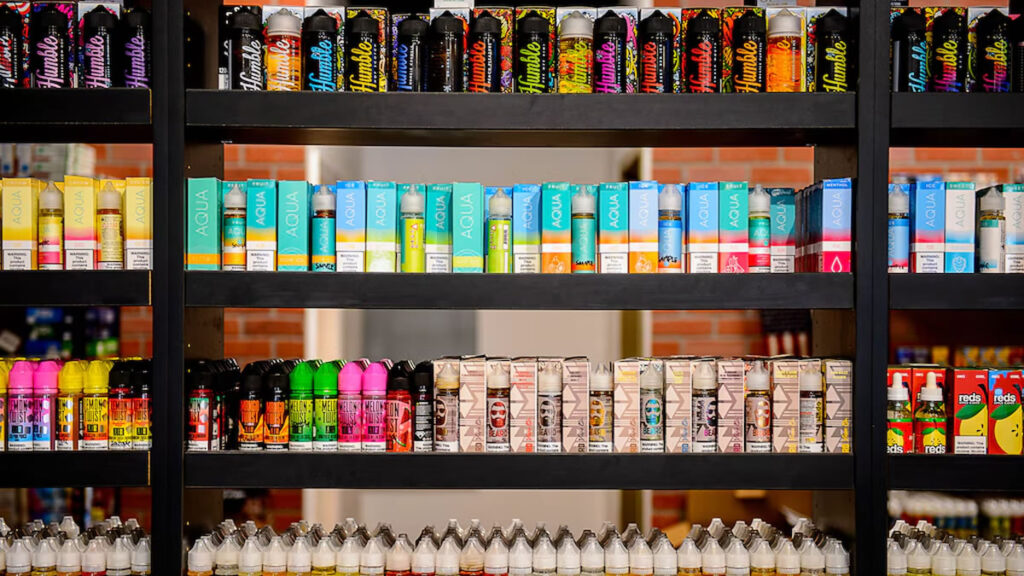Utah's new law, which includes a flavor ban for vape products and the establishment of a PMTA (Premarket Tobacco Product Application) registry, is now officially in effect. The law will begin being enforced immediately, following a federal judge's decision on Monday to deny a motion that sought to prevent enforcement while the ongoing lawsuit challenging the law continues. This ruling means that the vapor industry plaintiffs can no longer legally sell flavored e-cigarettes or vape products while they await the final legal outcome of their lawsuit.
Utah Senate Bill 61: Key Components of the Law
The law, known as Senate Bill 61, was passed in March 2024 and signed into law by Governor Spencer Cox. This legislation introduces several significant changes, including:
- Flavor Ban: The bill prohibits the sale of any vape product containing e-liquids with flavors other than tobacco and menthol. This impacts both in-store and online sales, but Utah already had restrictions on online vape sales since 2016.
- PMTA Registry: The law mandates a registry managed by the Utah Department of Health and Human Services (DHHS), requiring that all vape products sold in the state be approved through the FDA's Premarket Tobacco Product Application (PMTA) process. This registry aims to regulate and ensure that only products meeting FDA standards are available to consumers.
- Nicotine Strength Limit: Another key provision of the law limits the nicotine content of e-liquids to no more than 4% (40 mg/mL). This aims to reduce the potency of nicotine products available to consumers, particularly youth and those looking to quit smoking.
The registry was initially set to begin in October 2024, with enforcement starting in January 2025. However, with the judge's recent ruling, the law is now actively being enforced, despite the ongoing legal challenges.
Challenges for Utah's Vape Shops
For Utah's vape shops, the situation is now dire. These businesses, already struggling due to previous restrictions on online sales, now face the added burden of the flavor ban and nicotine strength limitations. Since 2016, local vape shops have been the sole retailers for e-liquids and refillable vape devices in the state. With flavored products now prohibited, many of these businesses are warning that they will not be able to stay afloat.
In response to these developments, the Utah Vapor Business Association (UVBA) filed a lawsuit against the state, arguing that SB 61 is unconstitutional and should not be enforced while the legal challenge is pending. On December 30, 2024, U.S. District Court Judge David Barlow had temporarily blocked the enforcement of the law, but that ruling was overturned this week, allowing the state to proceed with the flavor ban and PMTA registry.
Many vape shop owners, such as Beau Maxon, owner of Park City Vapor, have expressed their frustration and concern for the future. “We’re going to try to survive the best we can in hopes of coming back to the table for the 2026 legislative session,” Maxon told the Salt Lake Tribune. "But not being able to sell the product your business is built around—that’s a tall order."
The Future of Utah's Vape Industry
While the Utah State House Bill HB 432 was proposed this session to allow the continued sale of flavored products in licensed specialty stores, it failed in a 47-22 vote in March 2024. This bill could be revived in the future, but with no clear path forward in the short term, vape shops in Utah are left in limbo, facing both economic hardship and legal uncertainty.
For now, the law stands, and the vaping industry in Utah must adapt to the new regulatory environment. As the lawsuit continues to move through the courts, the next few months will determine the future of Utah's vape shops and their ability to survive in a rapidly changing marketplace.

Digital Content Creator & Vape Industry Analyst
Jake Miller is a prominent voice in the American vaping community, known for his transparent, tech-focused approach to harm reduction and hardware innovation. With over six years of experience in the industry, Tyler transitioned from a hobbyist to a full-time content creator, building a loyal following through his unfiltered reviews and deep-dive technical tutorials.




